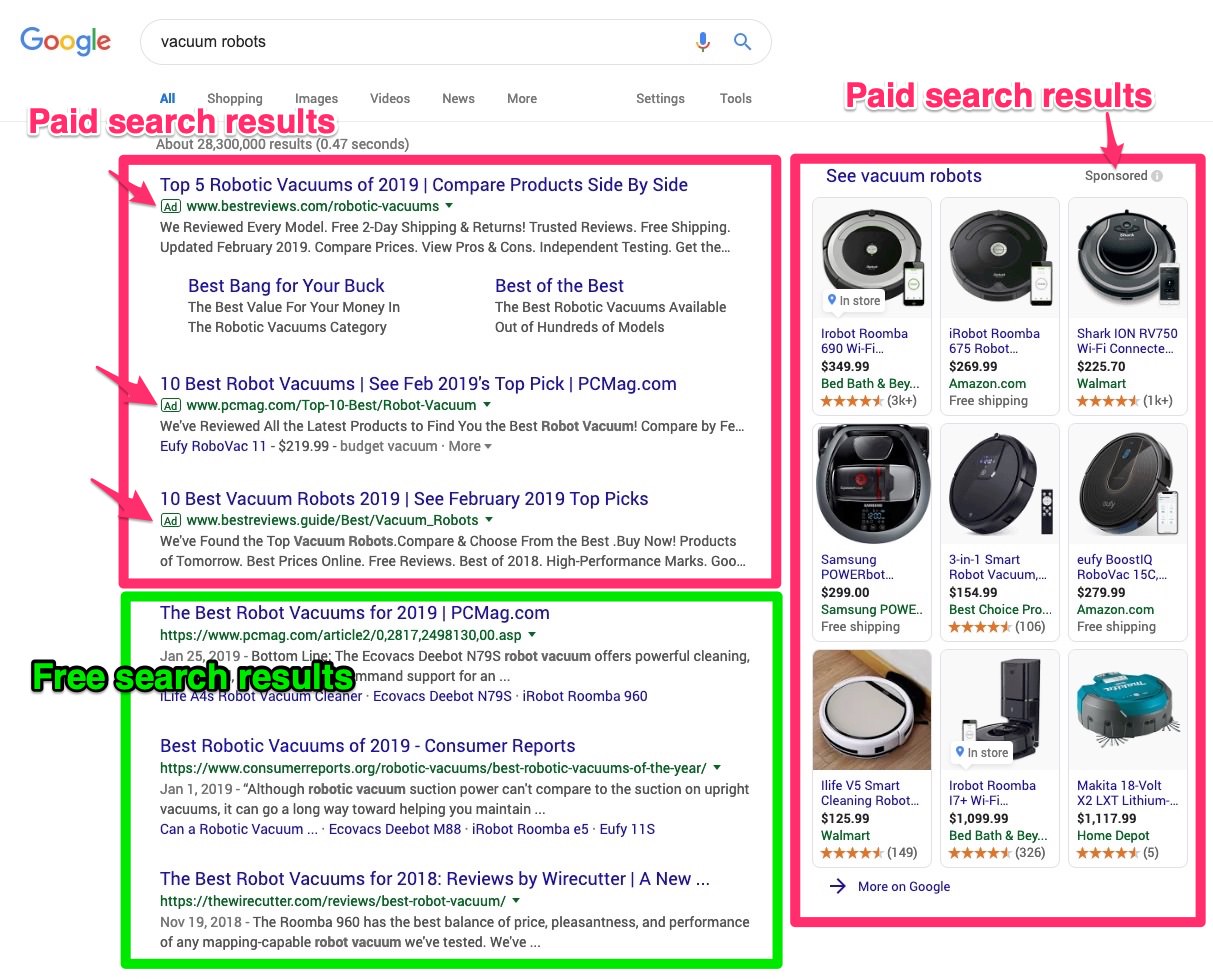Google provides 92% of all search engine results worldwide. That’s over 3 billion searches per day!
Obviously,
when you create a website you shouldn’t expect 3 billion visits the
very next day. However, it is reasonable to expect several tens, or even
hundreds of thousands of visitors per month if you’ve done your SEO
correctly. And remember, every visitor is a potential customer.
Why Google?
Due to Google’s predominance among search engines, we will mainly discuss techniques that apply to this search engine.
Although
each search engine may have its own specificities, they all operate
along the same basic principles. You can, therefore, apply what you
learn in this course (with some slight changes) to all search engines.
 |
| Free Demo Available |
How does Google work?
Google’s
search engine is a robot, also called a "crawler” or “spider,” that
travels the web by following links from one website to the next.
Each time it reaches a new web page, it reads and records the content through a process called scraping. Google extracts all the text from an existing website which is referred to as indexing a web page.
Next,
using various algorithms, it will rank these pages in order to return
the most relevant information for your query. It bases its ranking on
three types of criteria:
- Authority: Are people talking about you on the internet?
- Relevance of your content: Is your content relevant to a user’s search, and is the information of good quality?
- Technical optimization: Is your website sufficiently user-friendly and fast?
Differentiate between free and paid search results
 |
| Example Of Paid and Free Results on Google
Once the search initiated, you are directed to a page containing ranked
results (see above). There are two main types of results:
Paid search results
Please note that the screenshot above is only one example of how results may be organized. The position of each type of search result often varies!
Indeed, it
is possible for Google Shopping results to be displayed where the
knowledge panel appears above. Alternatively, if you search for a place,
a Google Maps entry will be displayed at the top of the results page.
With a little practice, you will be able to recognize the various types of results quickly.
Since there are paid results, and my competitors have a bigger budget
than I do,
why should I waste time trying to improve my SEO?
When you
purchase an ad on a search engine, you pay “per click,” which can cost
as much as 3€ and 8€ per click. To attract 100 visitors per month, you
would need to spend 300-800€ every month.
However,
with a moderate amount of work, you can optimize your website, improve
its SEO, and attract a greater number of visitors for free!
Although
it may be hard to obtain exact figures, SEO professionals note that
paid results only attract 15-20% of clicks. This implies that over 80%
of clicks are of free search results (source: Study of click rates by
Synodiance).
Can buying Google Ads improve my SEO?
Thankfully,
no. Otherwise, even very low quality websites could be first in SEO and
among paid ads! That would directly undermine Google’s principle of
free search results.
You
can improve your SEO by creating a Google-optimized website with
quality content. We will look at how to do this in subsequent chapters.
|




2 Comments
Vrl Packersd And Movers Bangalore, Call Now 9632828844, 9901828844 Email info@vrlhouseshifting.com Web http://www.vrlhouseshifting.com Gmail vrlhspnm@gmail.com
ReplyDeleteGreat blog. All posts have something to learn. Your work is very good and i appreciate you and hopping for some more informative posts. Business Coach Sydney
ReplyDelete